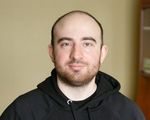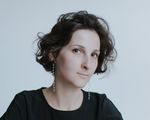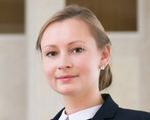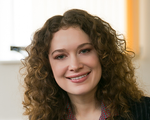About Success Builder
How do you find your place in life? How do you find something to do that both comes naturally to you and makes you happy? The answer is that you have to apply the knowledge you’ve gained from university and from life itself correctly. The Success Builder Project features HSE University graduates who have discovered themselves through an interesting business or an unexpected profession. The protagonists share their experiences and lessons learnt and talk about how they’ve made the most of the opportunities they were given.
Projects rarely become profitable right away, but if one learns from their mistakes and does not give up, success is sure to follow. In its six years of existence, the Timepad project has had its ups and downs, but in the end it became a market leader. Timepad’s creators – Ludmila Pavlova, Daria Ustyuzhanina, and Artem Kiselev, all HSE alumni – told Success Builder about the advantages of the Russian market, how to avoid spending money on advertising, and how to earn over 100 million rubles without selling your idea.
Did you come to the idea of creating a unique event organising platform by yourself or did you learn about it from foreign sources?
>2 mln
tickets sold through Timepad
Daria: The idea came about when we were all working at the Business Incubator organizing events. Thanks to this, we were able to create and try out our product right at HSE. At a certain point it became difficult for us to handle several events per week (and sometimes even more), so we thought of a tool that would help us with our work needs. By that time we had become very proficient in handling organizational issues. Lewdmila, for example, had organized a historical dance club, a preference club, and an art school; and what is now called Studlife at HSE was partially created by us. Artem also participated in organizing events for Business .RU Style. In short, we were engrossed in it, we understood the process, and we knew that something needed to be changed.
We made the first version of the program exclusively for ourselves in order to lessen the burden, and we started showing our friends. They were also carrying out student initiatives and needed help. People unexpectedly started using our development and began praising it. This gave us the idea of creating a large and serious project on the basis of our invention. That is how we started going straight to event organisers and showing them what a great idea we had.
Timepad is not simple from a technical standpoint – paying for a ticket, registering for an event, etc. How did you resolve any programming issues? And what is the key difference between your product and the same ticket intermediaries?
Daria: Timepad was made to help organisers create events; this includes working with participants, inviting people, handling registration, accepting money for tickets and attracting a new audience. Sure there are kassir.ru and parter.ru – they of course also sell tickets – but we have different objectives. Our resource is particularly useful for organisers; they are able to see who is coming to an event, as well as data on visitors in order to work with them further. The old ticket sales market had only one setup – you sell a ticket and you do not know to whom. For us, selling tickets is important, but it is far from being the only option.
Artem: We had the technical know-how from the start from when we tried organizing HSE events. The first version of Timepad was actually created using what was available, but when the service started snowballing, I realized that I could not handle all requests by myself, which is why we hired a technical team.
Daria: The first programmer we hired was the project’s only paid employee. Now there are around 35 people working here, and we hired six just this week.
How is your current work connected to what you studied at the university?
Daria: Ludmila studied in the Faculty of Economics during her undergrad and got her master’s at ICEF, while Artem and I both studied in the Faculty of Business Informatics, which is why we have directly applied our university knowledge to business. Though it is true that Artem is more technical, while I am on the business side. And despite the fact that we studied in the same faculty, we focus on completely different things at work. For example, I program ‘like a monkey,’ to put it in our internal lingo, but I am great at solving strategic issues.
Ludmila: With Artem, everything is clear – he is the brain behind the programming. There are unique competencies that he initially reinforced – this concerns everything connected with development and technologies, as well as everything concerning creating the product as a whole. Daria and I initially handled about everything, but we worked more with clients, finance, legal issues, raising financing and sales. Then a sort of specialization started peeping through – I have a financial background, while Daria’s is in general management and sales. There are still certain tasks that arise that we ‘throw around’ to one another. But we share key business decisions amongst ourselves; we do not have a director to issue the final verdict, much less a ‘board of directors’ or a ‘council of elders’ that make decisions collectively.
At what point did everything grow from a startup into a high-quality product that was new for the market?
Daria: For us, things worked out in a way where an idea organically turned into a tool that we ourselves use. It started looking like a business project when we began showing it to our friends and got good feedback. Then they started perfecting the product.
Ludmila: This cannot be called a turning point because the move towards the market lasted a fairly long time. The growth process is still on-going. Just like for a person – a baby does not turn straight into an adult. You have to go through mistakes and successes, change qualitatively, and start adding value.
Is Timepad’s ‘growth’ connected more with users’ requests or with the projects that you accumulate?
Daria: As for the beginning, there was simply an increase in users’ interest, as well as our own. We understood that we were needed, so we quit our main jobs and starting working exclusively on Timepad. We believed in it and saw the return – of course, not a financial return at that point. Our base also grew gradually. There are currently around 40,000 organisers to whom we can of course now offer more possibilities.
Ludmila: We have several large clients for whom we did nothing more than simply create a universal platform. This is of course HSE, for which we developed a system for organizing the April Conference. This system allows for applications and papers to be submitted and evaluated, and guests to be registered. Other favourites include the Polytechnic Museum, which we help by registering and assisting with the Children's University. Parents buy subscriptions for semesters and then choose their child’s individual course of study. We help make this complicated registration process easy for everyone.
If someone says, ‘let’s go destroy everyone,’ then of course we will block the event. We almost never see any calls for aggression, though there are Martian gatherings.
Which investments did the project initially require, and how much of this money went towards advertising?
Ludmila: We made several attempts to spend money on advertising, but not one of them was successful. It became clear almost immediately that attracting an audience is an organic process for us that is based on word of mouth.
Daria: A satisfied event organiser will suggest a useful service to another organiser, which is a very useful tool. Of course we had investments – we had to pay staff and resolve technical issues. We started by investing our own money, albeit small, but the main thing was effort. At first, none of us was receiving an income from what we did, and whatever we did earn at our old jobs was invested into the project. Then in 2009 we got a grant from the Bortnik Fund (Fund for Assistance to Small Innovative Enterprises in Science and Technology). The grant turned out to be pretty useful, though people say different things about state grants. This support was enough for us to gradually develop the product and hire our first full-time employee – a programmer – which pretty much ate up the entire grant. Then there were private investments, which is how we met Afisha-Rambler.
Ludmila: Afisha-Rambler became our shareholder. Afisha planned to develop Timepad as a ticketing service and platform to advertise local events, but as a result we decided not to continue this cooperation.
Daria: Certain ideas could not be carried out in our work with Afisha, but we were able to peacefully split and we now have a good financial investor – Target Ventures. This fund bought the Timepad shares that previously belonged to Rambler.
The product is purely networking based, so it would be interesting to know how you worked on attracting an audience on social networks…
Ludmila: Social channels really are the method that attracts people to events. This is absolutely our story. People find out about events mostly based on recommendations; it is like calling someone and asking them to come with you to a party. It is stupid not to use networking tools; after all, this is where all options exist for inviting friends to an event or letting them know about one. We actively carry out publicity, and we promote events and bring in an audience with the help of users and organisers on social networks.
One relatively recent innovation, for example, is a widget that allows you to buy tickets without leaving VKontakte.
15 kg
of cookies eaten at Timepad's office each month
Now for a tactless question: how do you make money?
Artem: How we do business is a completely normal question. The earnings path was tricky at first because the service was initially absolutely free. The product did not require money from organisers or from users. At a certain point it became necessary to stop investing money and start earning it, so we did the simplest thing possible – we started selling paid subscriptions and additional paid opportunities. A lot of effort was spent on billing, but earnings were still weak. Overall, this was a failure. So we started experimenting, which is how various partner programmes came about, right up to the point where we offered to print business cards for the organisers and make event badges. Several experiments were in fact a huge success – selling tickets through the site and the advertising opportunities we offer organisers.
Daria: Now we have two main sources of income: a percent of ticket sales and event promotion costs.
Is there any sort of censorship with the events? After all, it is completely possible for someone to publish an announcement for Orthodox activists to hold peaceful protests against the theatre arts.
Ludmila: We have had pickets. Really, anyone can go and register an event on Timepad and start promoting it. We only block events that are completely wrong on moral and legal grounds. If someone says, ‘let’s go destroy everyone,’ then of course we will block the event. We almost never see any calls for aggression, though there are Martian gatherings. As a service, we are open to all organisers, but we have an editor in chief who checks statistics and carries out serious editing work to evaluate how relevant an event is and how well it is described. We have a list of recommendations for organisers such as ‘how to please an editor or audience.’
We always recommend training programmes, concerts, workshops – events that really leave no room for doubt. A lot of conferences are traditionally advertised on Timepad; we really support educational events. All in all, we are not snobs.
But what we definitely are not planning to do in the near future is move outside of Russia and the online Russian-language space.
What might Timepad turn into in the future?
Ludmila: We are planning to develop the product. But what we definitely are not planning to do in the near future is move outside of Russia and the online Russian-language space. We are more interested in working on the domestic market since we have an extremely strong competitive advantage and potential here and the Western market is more or less developed. A period of rapid growth lies ahead in Russia, and as the leaders, we are very interested in taking part and growing.
And is that why you did not sell your idea, as is often the case with good startups?
Ludmila: It is possible that we will sell, but no one has offered us the amount we value ourselves at (laughs).














































































































































